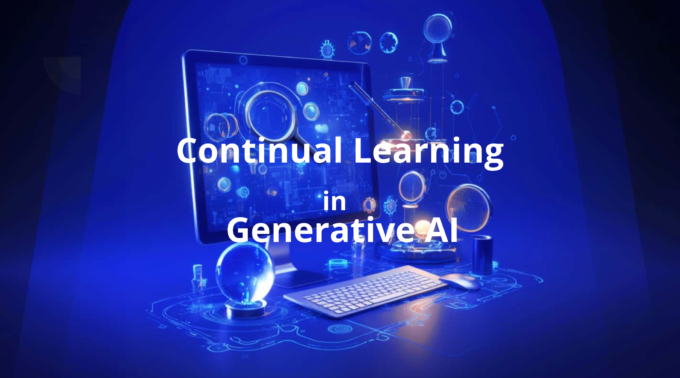The realm of Artificial Intelligence (AI) is experiencing an unprecedented evolution, transforming industries and daily lives at a breathtaking pace. This rapid advancement underscores the importance for professionals and enthusiasts to stay informed and adaptable. However, navigating through the deluge of new developments, tools, and theories presents a formidable challenge. Keeping abreast of AI innovations is not just about gaining knowledge—it’s about securing a competitive edge in an increasingly AI-driven world.
Understanding AI Trends

Source: cppinvestments.com
The AI landscape is marked by a flurry of trends, from the rise of generative Artificial Intelligence models like GPT to AI’s integration into healthcare, offering predictive diagnostics and personalized treatment plans. These trends signal a shift towards more autonomous, intelligent systems capable of complex decision-making and creativity. As we look to the future, we anticipate further breakthroughs in AI’s ability to process and understand human emotions, leading to more intuitive human-computer interactions.
Leveraging AI Communities and Networks
The dynamism of AI innovation is paralleled by the vibrancy of its communities. For those keen on staying ahead, participation in forums and networks is invaluable. Platforms like GitHub, Reddit’s r/MachineLearning, and LinkedIn groups serve as conduits for knowledge exchange and collaboration. Networking within these communities not only fosters learning but also opens doors to potential partnerships and career opportunities.
Engaging with AI Research and Publications
To truly grasp the frontier of Artificial Intelligence, one must engage with the wealth of research and publications available. Prestigious journals and conferences, such as the Journal of Artificial Intelligence Research and NeurIPS, are gold mines of cutting-edge insights. Understanding these papers, however, requires a methodical approach—start with the abstract and conclusion, then delve into the methodology and experiments to grasp the core innovations. This process not only enhances comprehension but also enables the application of theoretical knowledge to practical scenarios. Subscribing to Artificial Intelligence research newsletters with a focus on AI writing and attending webinars by authors can further deepen understanding and keep you abreast of the latest breakthroughs.
Participating in AI Conferences and Workshops

AI conferences and workshops are crucibles of innovation, offering a firsthand look at new research, tools, and methodologies. Events like the International Conference on Machine Learning (ICML) and AI-specific workshops provide invaluable learning and networking opportunities. Selecting events that align with your interests and expertise maximizes the benefits, turning these gatherings into a springboard for professional growth. Additionally, volunteering at these events can offer closer interactions with pioneers and a behind-the-scenes look at Artificial Intelligence advancements. Engaging in post-conference discussions and collaborative projects can also extend the learning experience beyond the event itself.
Following AI Thought Leaders and Innovators
The AI field is steered by thought leaders whose insights and discoveries shape the future of technology. Following luminaries such as Geoffrey Hinton, Yoshua Bengio, and Fei-Fei Li on platforms like Twitter and LinkedIn provides a window into the minds driving Artificial Intelligence forward. Engaging with these experts can offer inspiration and guidance for your own Artificial Intelligence journey. Participating in their online courses, reading their publications, and attending their talks can provide deeper insights into their thought processes and research directions. This engagement is crucial for understanding the evolving landscape and identifying potential areas for innovation and research.
Experimenting with AI Projects and Tools
Hands-on experience is paramount for understanding AI’s capabilities and limitations. Platforms like TensorFlow, PyTorch, and OpenAI provide the sandbox for experimenting with Artificial Intelligence models and algorithms. Starting your own project, whether it’s a simple machine learning model or a more complex neural network, demystifies Artificial Intelligence and enriches your practical knowledge. Collaborating on open-source projects or participating in hackathons can also offer practical experience and feedback from the community. These activities not only bolster your understanding but also showcase your skills to potential employers or collaborators.
Continual Learning and Education in AI

Source: analyticsvidhya.com
The AI field is in constant flux, making continuous education essential. Numerous courses, certifications, and degree programs are available, covering everything from basics to advanced topics. Balancing professional responsibilities with education can be challenging, but the investment in learning pays dividends in staying relevant and innovative in the Artificial Intelligence landscape. Engaging in peer learning groups and online forums can complement formal education, providing practical insights and fostering a culture of continuous improvement. This approach ensures that you remain at the cutting edge, ready to adapt to new technologies and methodologies.
Corporate Strategies for AI Innovation
Companies aiming to lead in their sectors must embed Artificial Intelligence innovation into their strategies. This involves not just investment in research and development but also fostering a culture of innovation and agility. Understanding emerging Artificial Intelligence trends and technologies enables businesses to leverage Artificial Intelligence for improved decision-making, efficiency, and customer experiences. Encouraging cross-disciplinary teams to explore Artificial Intelligence applications and investing in employee training can cultivate a fertile ground for innovation. This strategic focus not only enhances competitive advantage but also prepares companies for future challenges and opportunities in an AI-driven landscape.
Ethical Considerations in AI Advancements
As AI becomes more integrated into society, its ethical implications come to the fore. Developers and practitioners must navigate issues of privacy, bias, and accountability. Adhering to ethical guidelines ensures that AI advancements contribute positively to society, fostering trust and sustainable progress. Establishing multidisciplinary ethics committees and engaging in public discourse on Artificial Intelligence ethics can help address societal concerns. Moreover, incorporating ethical considerations into the design and deployment of AI systems is essential for building technologies that enhance human capabilities without compromising values or rights.
Overcoming Challenges in Keeping Up with AI

Source: algolia.com
The rapid pace of AI innovation can be overwhelming, leading to information overload and difficulty in discerning relevant trends. Overcoming these challenges requires strategic approaches to learning, such as prioritizing key areas of interest and leveraging summaries and analyses from trusted sources. Effective time management enables a balanced approach to keeping up with Artificial Intelligence developments.
Conclusion and Call to Action
The journey through AI’s evolving landscape is both exhilarating and daunting. Staying updated with the latest innovations is crucial for anyone looking to harness the power of AI, whether you’re a professional, an enthusiast, or a company. Engage with communities, dive into research, participate in events, and embark on projects. As we stand on the brink of new Artificial Intelligence horizons, let’s embrace continuous learning and innovation. The future of Artificial Intelligence is not just to be observed but to be actively shaped by our collective efforts and curiosity.







